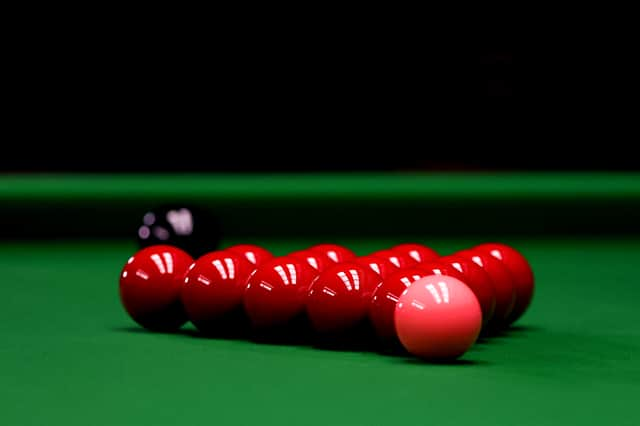How do the World Snooker Rankings Work?


Professional snooker first used a ranking system in 1976. It was initially a very basic points system, as the World Snooker Championship was the only event it applied to.
To populate a ranking list, the authorities used the results from the three previous world championships (1974-76) and retrospectively awarded each of these editions ranking event status.
Advertisement
Advertisement
As snooker’s popularity boomed in the 1980s, there were more professional players and a bigger demand for events. Recently introduced tournaments were awarded ranking event status, and points from these would also count towards the world rankings.
The system changed to a two-year format, meaning total cumulative ranking points earned throughout the previous two seasons became a player’s overall points total.
Ranking positions only changed at the end of the season in preparation for the new season, regardless of how well or poorly a player’s results were in recent months.
This concept remained in place until the start of the 2010/11 season when Barry Hearn’s administration took over the professional game.
Advertisement
Advertisement
The rankings became a ‘rolling list’ meaning positions were updated after every ranking event instead of every season. This was a big, dynamic change for the sport with the idea being that the rankings should better represent form from the current season.
It created opportunity, meaning a lower ranked player in form could immediately rise the rankings after a big win instead of waiting until the following season. However, it also meant that a higher ranked player who wasn’t getting results could drop down the rankings quickly, too.
The rolling format has remained ever since, although another significant change to the rankings arrived when prize money totals replaced points in the 2014/15 season.
Before, ranking points were assigned to events, the amount being dependent on how prestigious the tournament was. Now, the prize money players earn from an event is basically also used as ‘points’, therefore on World Snooker Tour’s world ranking list, player’s rankings totals are in pounds, not points.
Advertisement
Advertisement
This concept has its critics – as the prize money at some of the biggest events can dwarf that of others – but it is simpler to understand; whatever prize money you earn at a ranking event also goes towards your ranking total.
There are a few expectations to this rule at times. For example, high break and bonus prizes don’t count, and occasionally first match/round losers who were already on prize money don’t have that added to their totals either. There are also seedings cut-offs for events, but we won’t complicate things further at this point!
Example Situation
A rolling money list for the world rankings means prize money comes off your total two years later. So, if you won the 2020 English Open, following the conclusion of the 2022 English Open, the prize money you won at the 2020 event comes off your total and the money you won at the 2022 event goes on.
Example (and fake!) situation:
Going into the 2024 World Snooker Championship, John Pots is the world number one with a ranking total of £1,500,000.
He won the 2022 World Snooker Championship and earned £500,000.
He goes to the 2024 World Snooker Championship, loses in the semi-finals and earns £100,000.
When the 2024 World Snooker Championship is completed, the rankings are updated.
John Pots’ new ranking total is £1,100,000.
From his total of £1,500,000 going into the tournament, he loses the £500,000 he won in 2022, but gains the £100,000 he won in 2024.
You may hear snooker commentators say that players have prize money ‘to defend’. This basically means they know they have significant prize money due to come off their overall total unless they don’t get a similar result to what they did at the same event two years ago.
Advertisement
Advertisement
Please note, players don’t have to actually give back any money in real life, it’s just the ‘points’ from their rankings total.


Why doesn’t the Masters, Champion of Champions count towards the world snooker rankings?
The professional snooker circuit consists of ranking events and invitational events.
Invitational events are exactly what they say. Only certain players – usually dependent on their ranking – are invited to compete. Current invitational events on the circuit include the Masters, Champion of Champions and Shanghai Masters.
These events are not ranked as not all professional players initially have the opportunity to qualify/be invited to them. This applies to new professional players in their first and second years on tour, as they haven’t yet had the same opportunity to amass a cumulative two-years' worth of points.
What is the One-Year List in Snooker?
Advertisement
Advertisement
Whilst the official world snooker rankings are based on two years' worth of points, there is also a separate one-year ranking list, that is separate.
The one-year list is a running total of prize money earned from the start of the current season, only. So, for example, if you won £10,000 at the European Masters and £20,000 at the UK Championship, your one-year total so far is £30,000.
In theory, everyone on the tour has equal opportunity on this list as they are eligible to enter and can qualify for the same number of ranking events.
The one-year list is used to determine qualification for that season’s Players Series events – results from previous seasons and positions on the world rankings count for nothing!
Advertisement
Advertisement
The one-year list is also a route for certain players to keep their professional tour card if they are high enough up it at the end of the season.
Summary
The ranking system, and the players’ position within it, is very important to the sport as it can determine who has qualified for what, if they are seeded, in which round they enter an event, and even if they remain as a professional snooker player.
Winning events are what players dream of when they compete on the professional circuit, but the higher they climb up the rankings, the easier that may be.